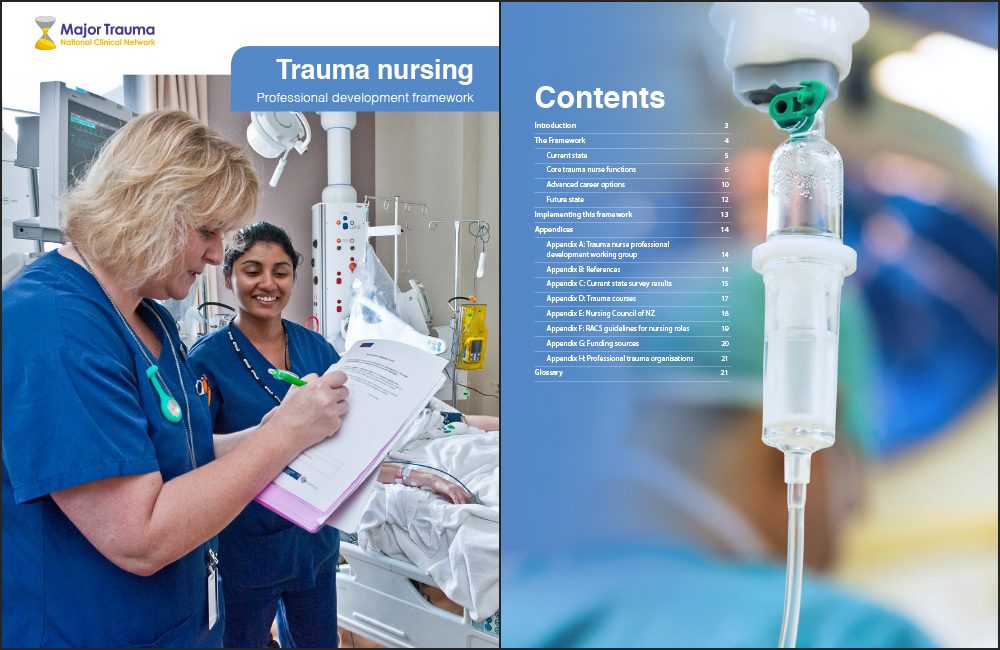
Trauma Nursing Professional Development
Introduction
In 2018 a working group of trauma nurses was set up to guide the development of this professional development framework. The group comprised representation from hospitals across the country, from small to large hospitals, and a range of experience from new to role to experienced (Appendix A).
The group identified four key areas of focus which form the basis of the framework:
- Current state
- Core trauma nursing skills and training
- Advanced trauma nurse career options
- Future trauma nursing state
This framework does have limitations and in particular we note the need to build the capacity and capability of the Maori trauma nursing workforce, incorporating Te Tiriti o Waitangi to address the burden of trauma for Maori across all aspects of the trauma system, and providing guidance on the level of resourcing in line with caseload. Future revisions of this framework should incorporate these aspects. This is the first time a trauma nurse professional development framework has been developed in New Zealand. We envisage this framework will be amended in time as our understanding of the role evolves and our trauma system matures.
Notwithstanding these limitations, this early work is an important step to building a high-performing trauma nursing workforce in New Zealand.
About major trauma in New Zealand
Major trauma accommodates those patients that incur injuries which have a threat to life. There are approximately 2,000 major trauma events per year and include injuries ranging from serious injury such as pelvic fractures, through to catastrophic injuries such as traumatic brain injury or mangled limbs which require intensive life-long care.
The burden of trauma is distributed unequally across New Zealand, and between population groups. Some regions have a disproportionally high incidence of major trauma and variation in the causes of injury. The burden of major trauma for Maori ais nearly double that for non-Maori, and the high incidence rate for young Maori males is of concern.
The National Trauma Network (the “Network”) was set up in 2012 to drive quality improvement across the trauma system and bring us into line with contemporary trauma systems internationally. Sponsored by ACC the Network has a strong clinical focus as the opportunity to improve outcomes for major trauma patient is largely in pre-hospital and hospital care. Best practice care results in fewer deaths and decreased life-long injury, and a more efficient health service.
There are variable levels of maturity in the trauma systems across the country, and many nurses and doctors are relatively new to role. The intent of this framework is to support a common understanding and consistent implementation of the trauma nurse role.
Specifications
- Last Updated: 2019
- Author(s): New Zealand National Clinical Network
- Category: Program Staff
- Tags: 2019, English, New Zealand National Clinical Network
PDF Documents
Please login to access file downloads.
